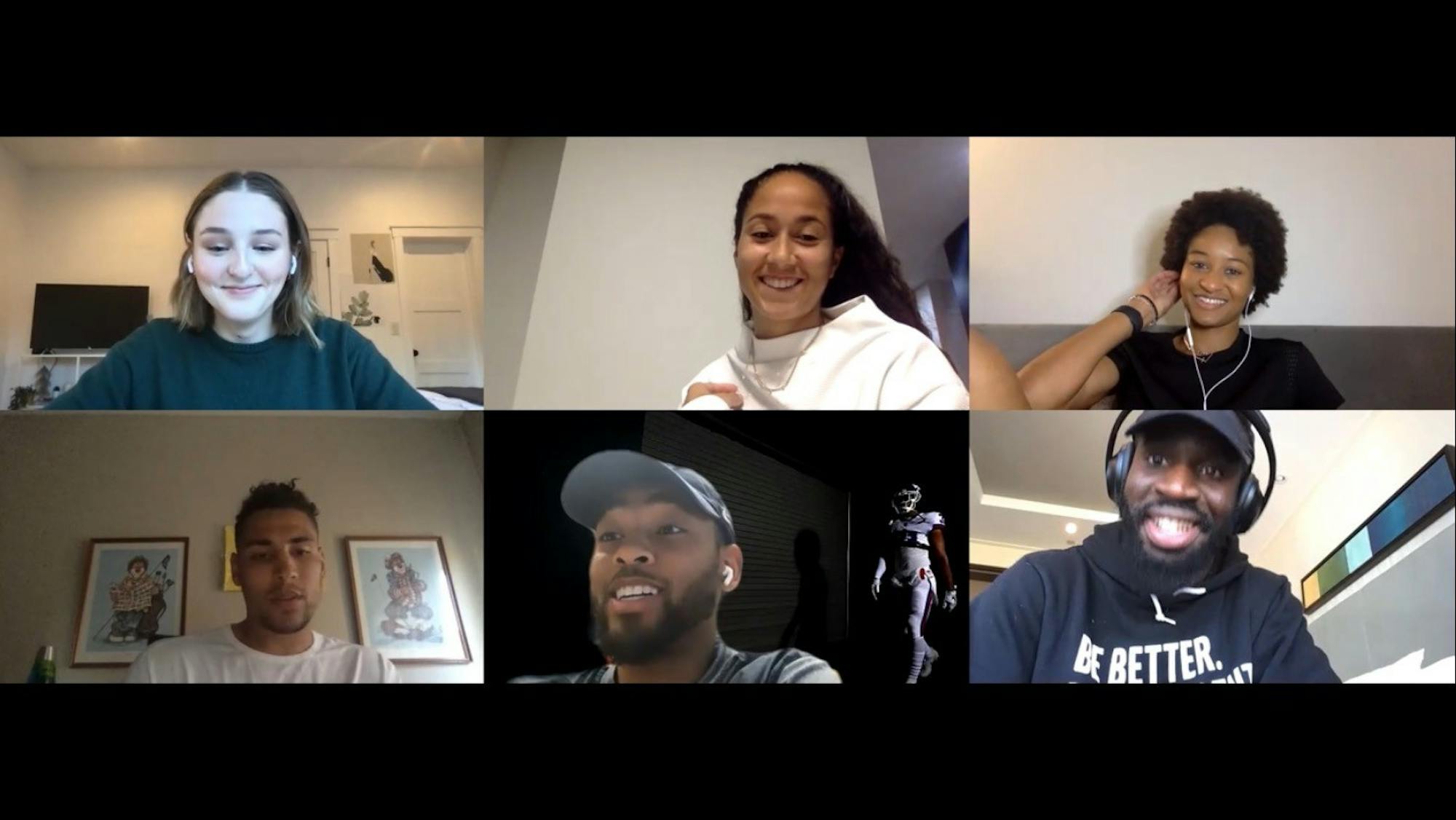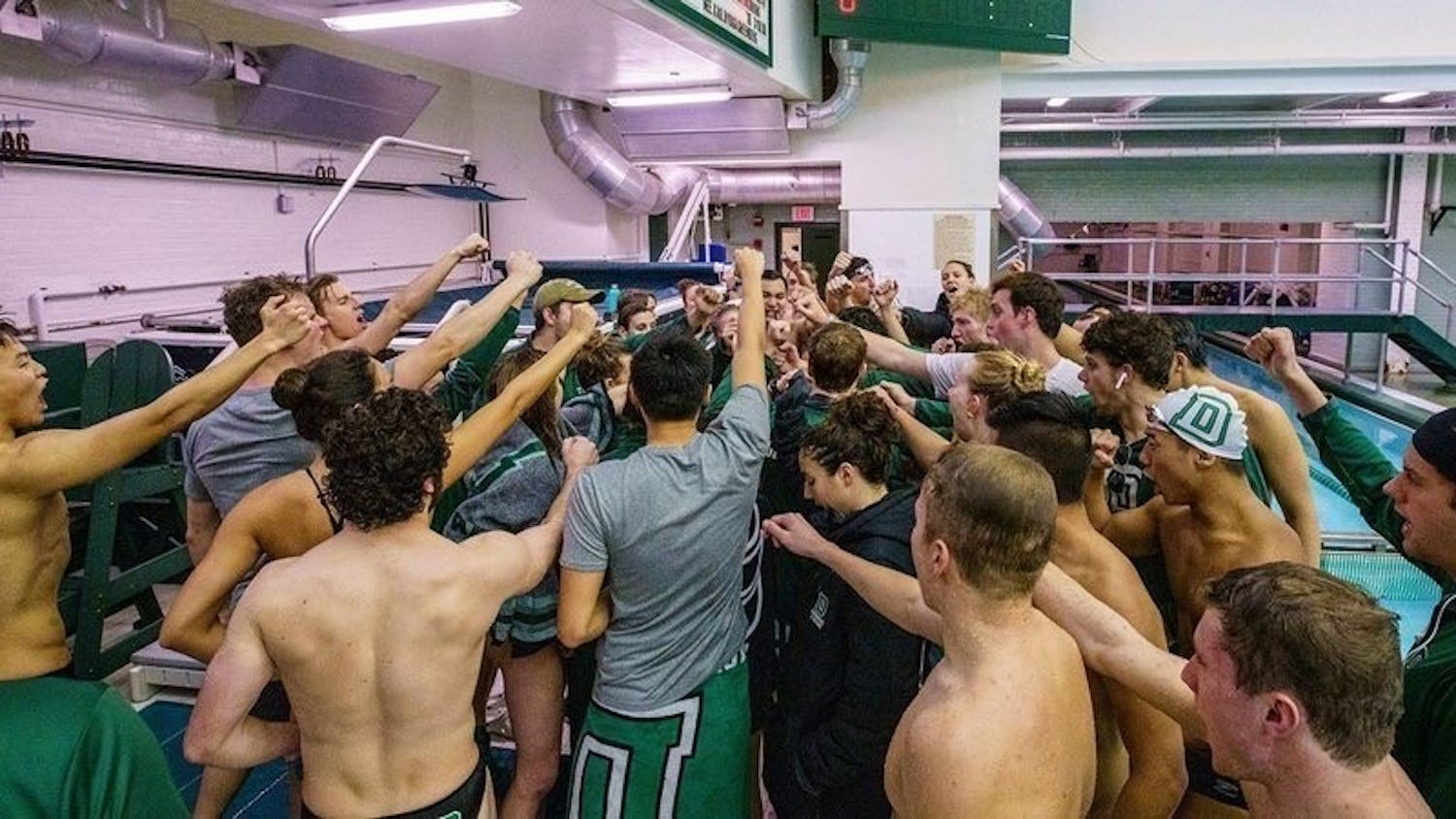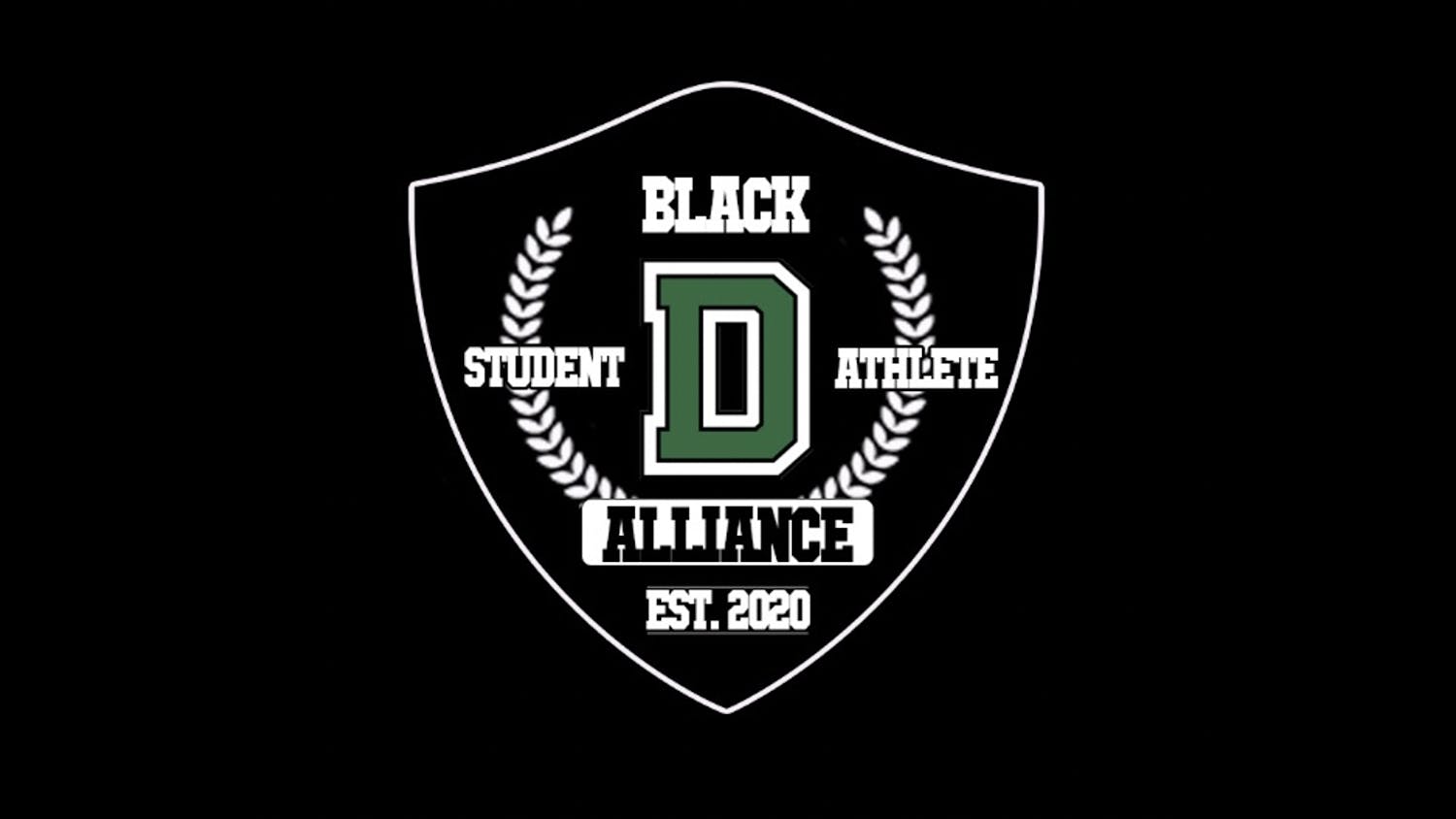On Thursday evening, the Dartmouth Political Union hosted a panel of professional athletes to discuss the intersection of politics and professional sports, touching on topics including Black Lives Matter protests and kneeling for the national anthem.
The roundtable included former New York Giants cornerbacks Prince Amukamara and Trevin Wade, San Francisco 49ers wide receiver prospect Shawn Poindexter and Sky Blue FC players Imani Dorsey and Domi Richardson. As the athletes introduced themselves, they also revealed that their political views varied: Dorsey and Richardson consider themselves Democrats, while Poindexter and Wade said they lean more conservative. Amukamara did not classify his political ideology.
Emma Elsbecker ’24, a member of the Dartmouth Political Union who moderated the roundtable, said before the event that she was eager to hear about the professional athletes’ motivations behind their political activism.
“I think when we talk about athletes in politics, we often see what they do, and we see what they think,” Elsbecker said. “But we don't know what motivates them … so I think that our goal is understanding why athletes decide to be political or not to be political.”
The discussion opened on the question of whether the panelists believed that kneeling for the national anthem — an action some professional athletes have used to protest racial injustice and police brutality — was justified.
The panelists varied in their views, but they shared the belief that kneeling was a right afforded to all professional athletes. Dorsey, who is a registered Democrat, began the discussion by saying she could honor what the American flag stands for while still accepting kneeling as an appropriate form of protest.
“I believe what the flag stands for is something that we should all be striving for: freedom, equality, pursuit of happiness,” Dorsey said. “Those are great qualities, but unfortunately, they just haven't been given to every American, and I think kneeling is a perfectly fine way to express that because it makes a statement, and it makes people reflect and try to think about why that is happening.”
Poindexter, whose 49ers franchise saw former quarterback Colin Kaepernick establish the national anthem protest in 2016, agreed with Dorsey. He added that he believed athletes should use their platforms to promote positive social and political change.
“There is a lot of inequality going on in the United States,” Poindexter said. “… We have the choice to stand up for something that we disagree with, and if you have the platform to use your opinion to help change things, I think that you should take advantage of it.”
Wade, meanwhile, did not oppose kneeling, but he was critical of Kaerpernick and questioned whether it had much impact compared to more concrete actions players can take within their communities.
The players also discussed the ramifications they may face from owners and executives. Jason Acosta Espinosa ’24 said that listening to the athletes speak on the power owners have over the players impacted his view of political protest in sports, such as kneeling.
“I'm still in support of kneeling, and I think that it's a valid response,” Acosta Espinosa said. “But I also understood the point that if you look at it from the perspective of a sports team owner, you wouldn't want to lose money, especially when that could cost other athletes as well since the money comes from the owner.”
Additionally, the panelists all discouraged performative activism, but they debated whether actions like posting on social media or outwardly displaying political views actually helped highlight social issues or only served to save face. Wade also expressed his concern that peer pressure forces athletes to support causes that they do not entirely agree with.
“For instance, if we're all on the team, and you guys kneel, and I don't kneel, it looks like I don't care,” Wade said. “And so then that pressures me to be fake and take a knee.”
Other panelists added that fans should not be judgmental of athletes who choose not to outwardly support political movements. Amukamara expressed that social media allows fans and other players to pass too much judgment of athletes.
“We never know what's happening behind the scenes,” Amukamara said. “We don't know what groundwork people are doing. I had teammates call me out … but me and my wife [were] at a Black Lives Matter protest with our two kids.”
Benjamin Wilkins ’24, an attendee of the event, said he is supportive of athletes who use their platform to promote social change but also understands the ramifications athletes may face for speaking out. He emphasized that athletes are in “a tough position” in determining whether to take a more “active” or “passive” approach in using their postgame interviews and social media as activist platforms.
The session also touched on how political activism in sports may benefit or deter the unifying quality of sports. While all of the panelists agreed that sports help bring people together — regardless of political affiliation — the panel was split on whether politics in sports harmed or helped this unifying aspect.
Amukamara conveyed concern that fans may unfairly alter their perceptions of players based on their political commentary. Richardson, however, said that she does not believe “voicing your opinion” on politics spurs divisiveness in professional sports.
“There [are] two sides of [democracy] for a reason — so that we can meet in the middle,” Richardson said. “And it's maybe cliche, but we talk about sports as an analogy to life all the time, and if we can coexist on the same field with the same goal, why can we not do that on the outside?”




![Sandy_Ford2_SoutherInv17_JR[4].jpg](https://snworksceo.imgix.net/drt/d2abc1e2-5f1f-4e19-8808-805819efb17b.sized-1000x1000.jpg?w=1500&ar=16%3A9&fit=crop&crop=faces&facepad=3&auto=format)